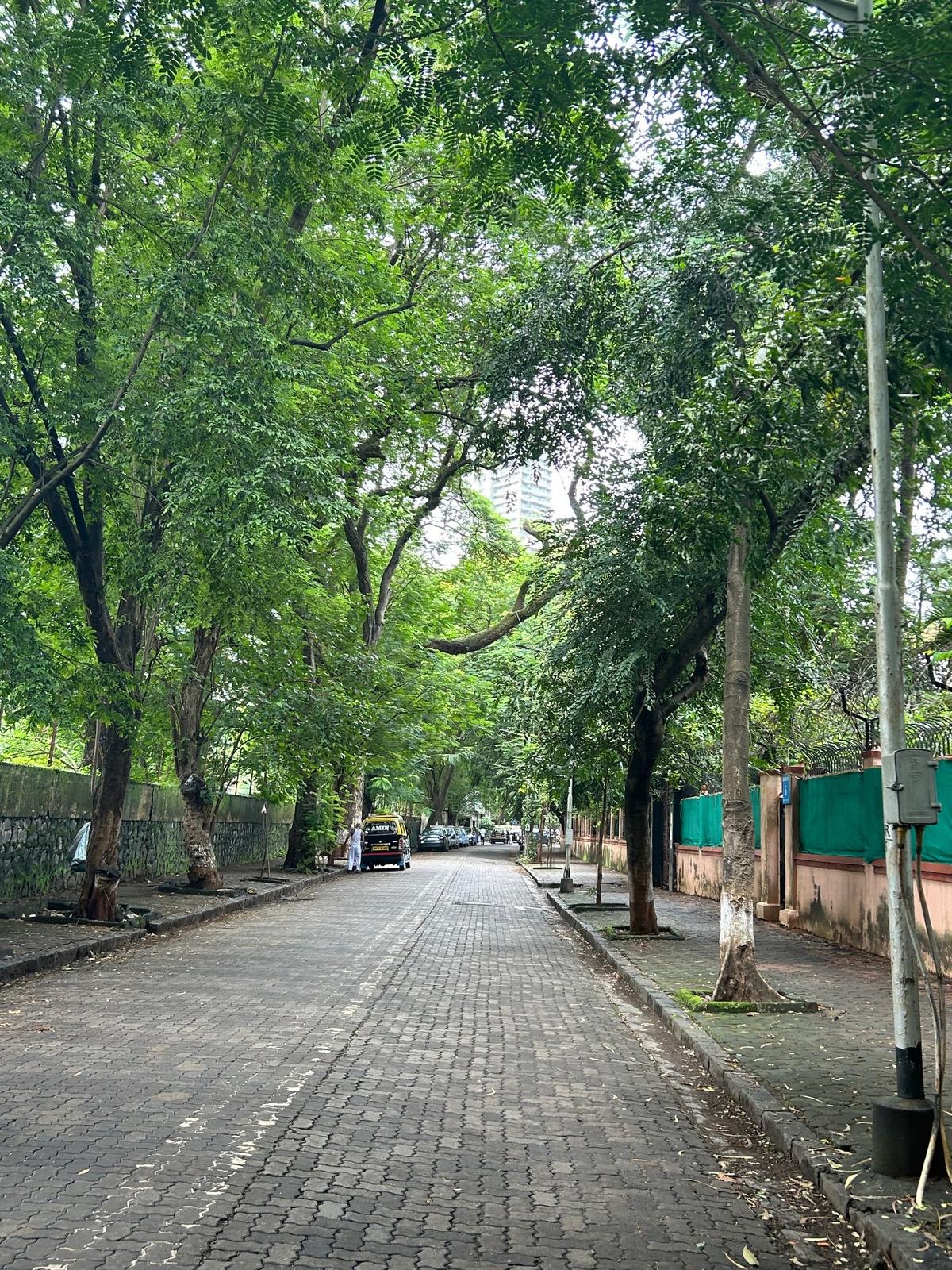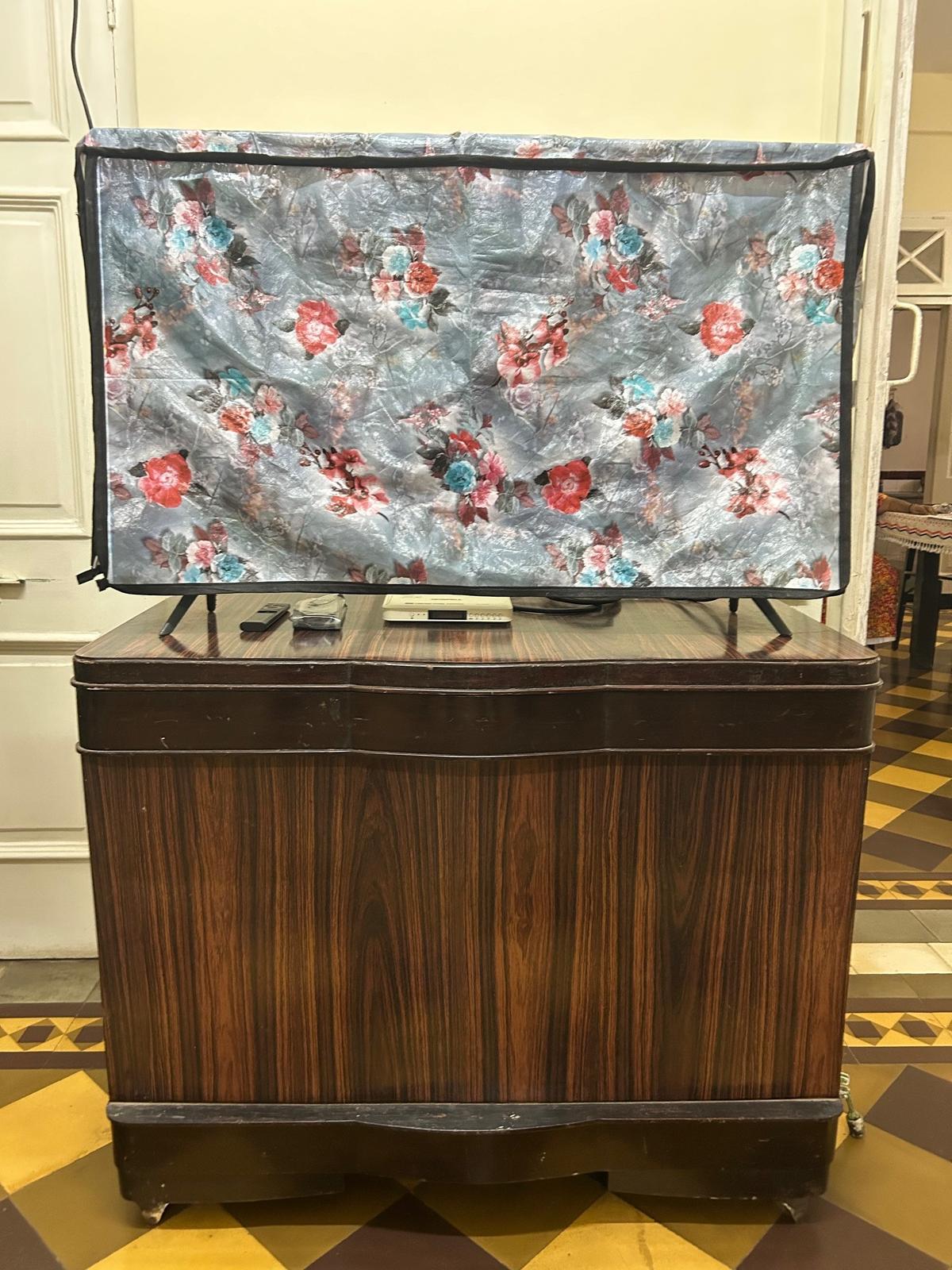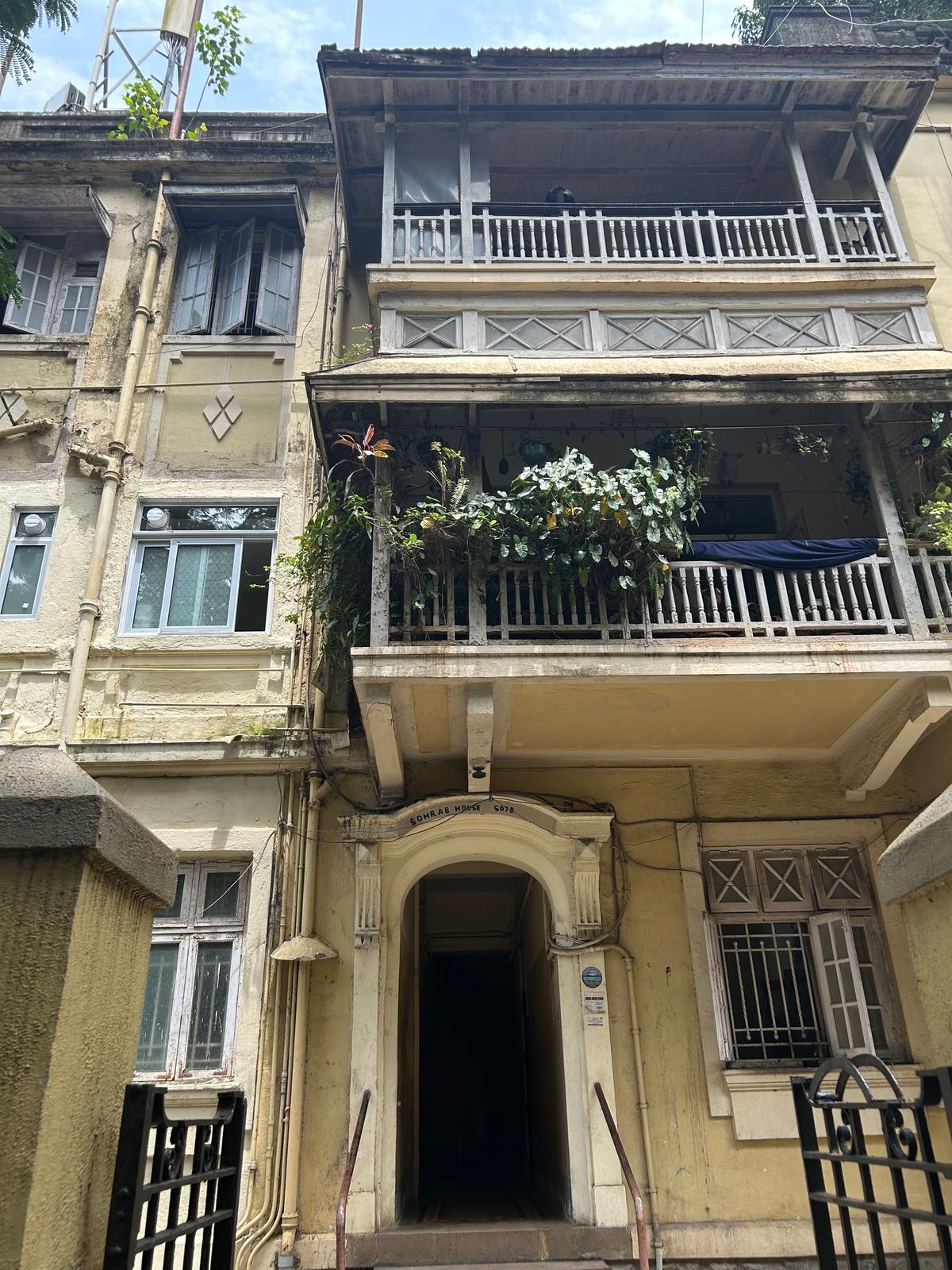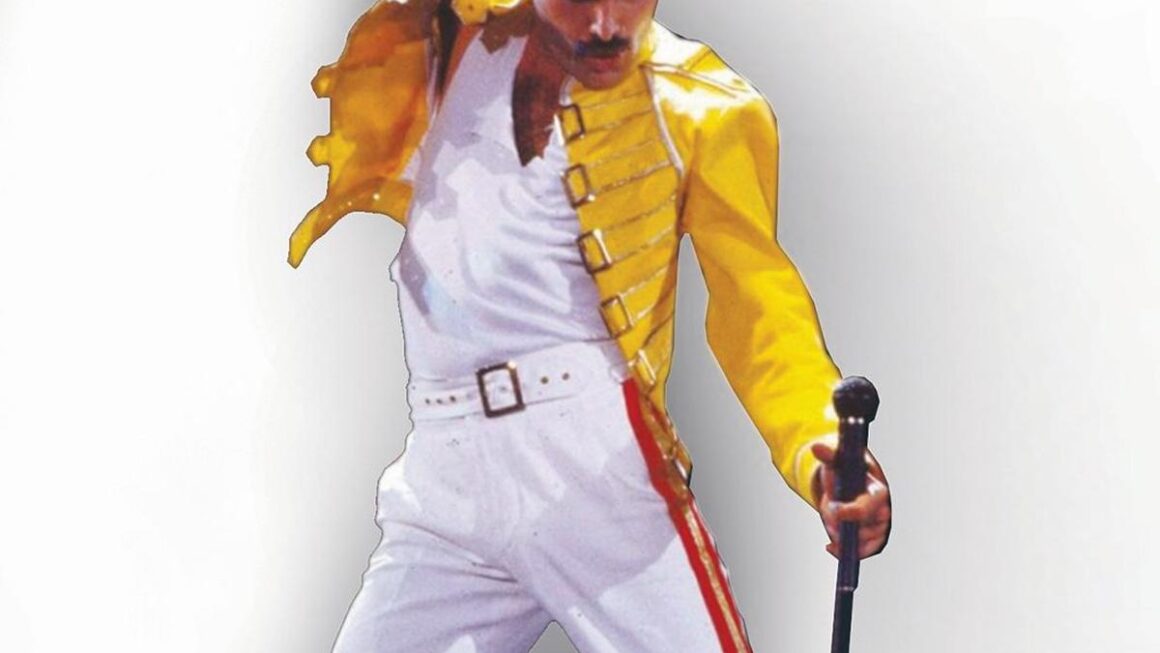
Freddie Mercury in his iconic costume – white pants with a red stripe, a white T-shirt and bright yellow military jacket
| Photo Credit: The Hindu Archives
It’s a warm and humid October morning. But you hardly feel the heat walking on the clean, wide tree-lined roads in Mumbai’s Dadar Parsi Colony. This is an oasis of quiet and green in a bustling megapolis. The houses here, not more than three storeys high, feature neo-classical and art deco architectural elements and the Faravahar (a bearded man on a winged disc) symbol at the entrance. They whisper tales of the past.

One of the streets in Dadar Parsi Colony
| Photo Credit:
Chitra Swaminathan
The largest Zoroastrian (Parsi) enclave in the world, the colony was established in the mid-1890s after the bubonic plague. Civil engineer Mancherji Edulji Joshi convinced the British in reserving this space, once a low-lying marshland, for Parsis. His futuristic blueprint included not just an agiary or fire temple (Rustom Faramna agiary), a school, a seminary (madrasa), and a wedding hall but also the tree species to be planted on each street. In a rapidly-changing city, the colony remains special as it quietly strives to hold on to Zoroastrian culture and tradition.
Queen at the Morumbi Stadium in Sao Paulo in 1981. (From left) Brian May, Roger Taylor, John Deacon and Freddie Mercury
| Photo Credit:
The Hindu Archives
The Dadar Parsi Colony is special for one more reason, especially for rock fans across the globe — Freddie Mercury, the frontman of the hugely popular 1970s British band ‘Queen’. A Parsi by birth, Freddie’s original name was Farrokh Bulsara, and his roots belong here. He was born in Zanzibar, East Africa, and was sent to India to study in a boarding school at Panchgani, in Maharashtra. Though the family later moved to the UK, Freddie, his mother Jer and father Bomi remained in touch with the extended family.
“Whenever they visited Mumbai, they preferred staying with us instead of at a five-star hotel,” says Freddie’s second cousin Jehangir Bulsara, sitting next to a table with a photograph of Freddie placed on it. “Look at that photograph,” he says pointing to the one inside a glass cupboard. “That is very dear to me since it has Freddie’s signature on it. He gave it to me and it’s my prized possession. Like many around the world, I too, am a die-hard Queen fan. The combination of ballads, metal, pop, glam rock and blues became the group’s signature style. The most amazing thing about Freddie was he constantly reinvented himself,” he says.

Once a record player on which Freddie played music is now being used as a trunk
| Photo Credit:
Chitra Swaminathan
The rock icon, known for his flamboyant stage presence (remember his military-style sunflower yellow jacket and silver-sequined unitard), songwriting abilities and powerful vocal range, began his music journey at the Panchgani boarding school. “I was told that Freddie’s parents sent him to St. Peter’s since he was extremely mischievous. During vacations, he would come to stay with us. He discovered his love for music when he became part of the school choir and later, the school band. None of us ever thought this shy boy would one day become an international star. But the family remained simple and humble,” says Jehangir.

The house where Freddie spent his vacations as a child.
| Photo Credit:
Chitra Swaminathan
As the four-member Queen stormed music charts with numbers like ‘Bohemian Rhapsody’, ‘We will rock you’ and ‘We are the champions’ and performed to packed stadiums (Queen live at Wembley Stadium had a turnout of more than 70,000), Freddie became one of the most influential and celebrated musicians.
The Parsi Colony is one of the first planned settlements of Mumbai and it reflects the collective dream of a community. Though it was exciting to go around the colony to explore Freddie’s India connect, the musician actually never openly spoke about his ethnicity or discussed his Parsi heritage. He feared racial prejudice and didn’t want to be looked at as an immigrant in the Western music industry. So Farrokh became Freddie, and he took on the surname Mercury after his song ‘My Fairy King’.
Freddie once said: “I always knew I was a star. And now, the rest of the world seems to agree with me.”
Published – October 09, 2024 04:36 pm IST


Leave a Reply